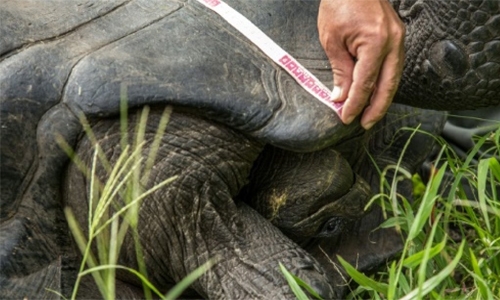Galapagos giant tortoise gene study hints at longevity secrets
Galapagos giant tortoises possess genetic variants linked to DNA repair, immune response and cancer suppression -- providing clues into their longevity, according to a study published Monday. A team of international researchers sequenced the genomes of two such tortoises, including Lonesome George -- the last known member of the subspecies Geochelone nigra abingdoni, who died in captivity on the Galapagos’s Santa Cruz Island in 2012.
They detected “lineage-specific variants affecting DNA repair genes, inflammatory mediators and genes related to cancer development,” according to the study published in the journal Nature Ecology & Evolution. The Pacific island chain off mainland Ecuador is famous for its unique flora and fauna studied by Charles Darwin as he developed his theory of evolution.
Twelve giant tortoise species still inhabit it. Galapagos National Park director Jorge Carrion said uncovering the secrets of Lonesome George’s longevity will help with efforts to restore giant tortoise populations in the archipelago. Giant tortoises, which can live for over 100 years in captivity, arrived in the volcanic Galapagos region three to four million years ago.
It is believed that ocean currents dispersed them around the islands, creating 15 different species -- three of which are extinct. The second giant tortoise studied was a member of a species found on islands of the Aldabra Atoll in the Seychelles.
Related Posts

